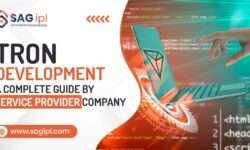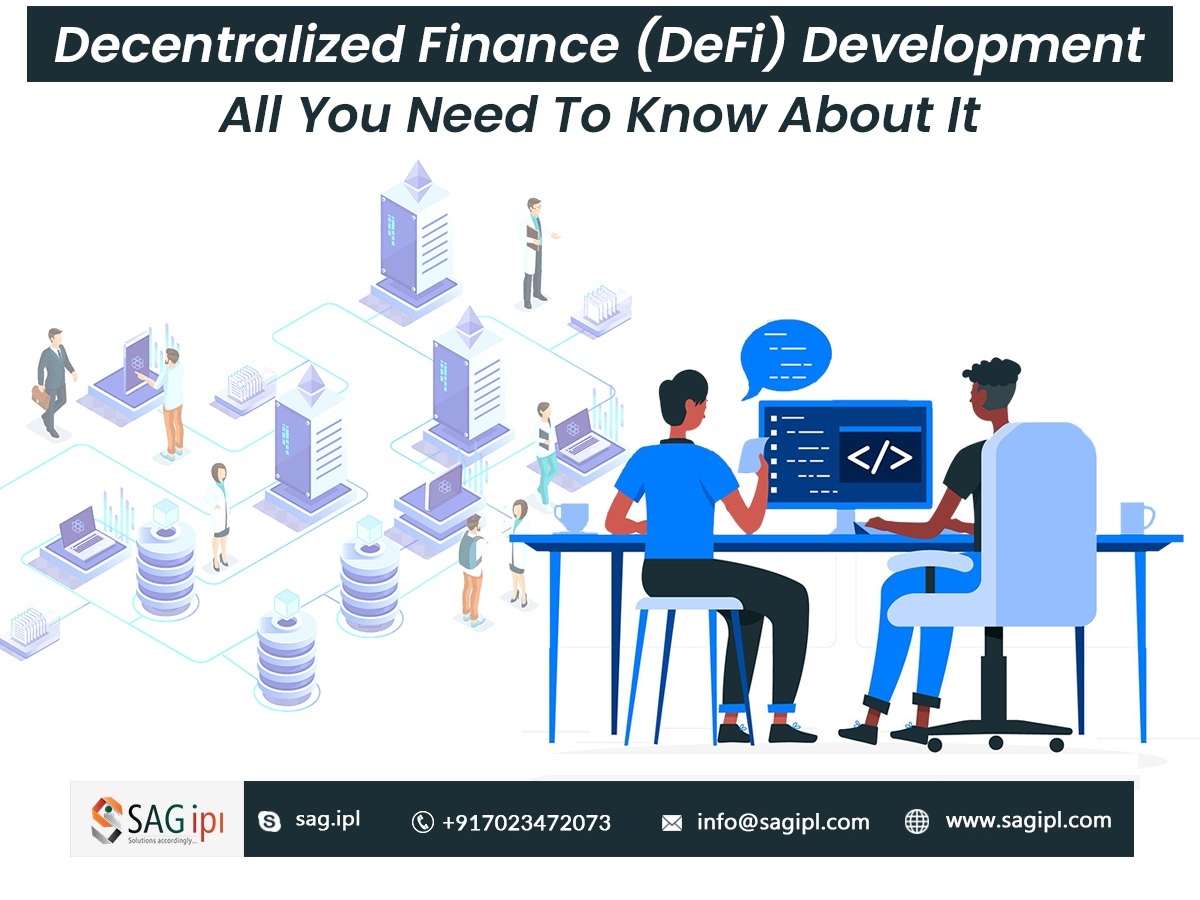The next generation of the internet is already here, and it is powered by advanced technologies like blockchain and artificial intelligence. It is believed that the Web 3.0 will be powered largely, if not completely, by the blockchain technology. If you’re interested in blockchain, here’s everything you need to know about different types of cryptocurrency development in 2024.
Blockchain is an online distributed ledger that maintains a decentralized record of information, facilitating peer-to-peer transactions through automated programs called smart contracts that operate on the blockchain’s distributed network.
Blockchain enables peer-to-peer transactions, such as the transfer of data, information, and even digital assets over a highly secure, distributed, public network that works without intermediaries or centralized control. Blockchain, as a technology, can be integrated into existing systems to improve efficiency and speed and reduce costs across industries including and beyond finance for all kinds of digital transactions.
Cryptocurrencies are blockchain-based digital assets or internet money that facilitate middle-free storage and transfer of value within the blockchain network. Besides as a store of value, cryptocurrencies can have numerous applications such as tokens for representing digital assets, rights, and ownership.
What is Blockchain Development and Why Should You Know About It?
Blockchain development may refer to the development of a blockchain network or the development of blockchain-based projects, products, and services.
Businesses and leaders worldwide are perceiving blockchain as a revolutionary technology that could disrupt the way things work across several sectors, especially finance, and are, therefore, aggressively investing in the development of blockchain-based solutions and products.

Some examples of blockchain development include different types of cryptocurrency development, blockchain website development, crypto exchange development, NFT development, and blockchain business development.
Some popular blockchain platforms out there include Ethereum, Binance Chain, Hyperledger blockchain, TRON, EOS blockchain, Solana blockchain, Cardano, and Polkadot.
Apps and platforms that are built on top of blockchain are decentralized in nature, i.e. operate without a centralized control or authority. The benefit is that users of decentralized apps (DApps) always have complete control over their data/information and the elimination of centralized control and middleman reduces the probability of failure or human-made errors, decreases the cost, and increases security.
To sum up, if you are looking to start a blockchain-based business in 2024, you need to know about the different types of cryptocurrency development that are crucial for the success of a crypto business. Check out these amazing blockchain & crypto business ideas
Some top benefits of blockchain development include:
- Increased trust between transacting parties
- Higher transaction security due to the absence of middleman
- Reduced cost of transactions
- Faster transaction speed
- Decentralized control – no single entity controls the network
- Reduce network failure
- Improved privacy – transact without sharing personal information
- Transparency & Traceability – easy to track transactions and processes
- Automated execution of trades through smart contracts
- Enhanced overall efficiency
- Immutability – blockchain records and data are incorruptible
- Blockchain tokens for payments, security, governance, utility, trading, and crowdfunding
Different Types of Cryptocurrency Development
Before embarking on your blockchain development journey, make sure that you know all about the types of blockchain and crypto development to find the right specialization that works for your specific needs and goals.
If you need professional help finding the right type of crypto development niche for your particular objectives, contact SAG IPL to connect and consult with our expert team.
Blockchain (Network) Development
In general, blockchain development refers to the process of creating a distributed ledger technology (DLT) network that facilitates peer-to-peer transactions between parties located anywhere in the world and maintains transparent, public records of these transactions and digital assets.
Developing a new blockchain from scratch is a complex and extremely lengthy process. Most of the new blockchain platforms out there are built on top of other, more established blockchains like Ethereum.
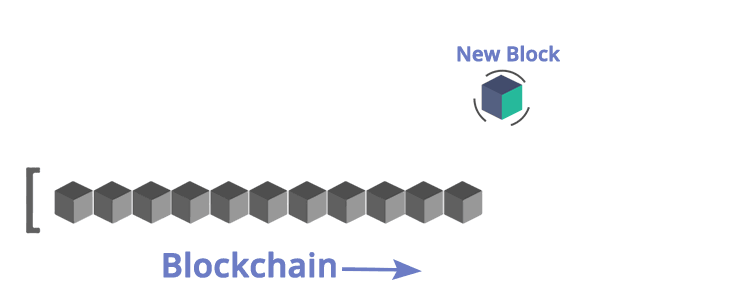
Even the Binance Coin (BNB) was originally hosted on the Ethereum blockchain and was later moved to the Binance Chain, which is Binance’s own blockchain.
As a free and open-source blockchain platform, Ethereum is used by developers and companies all over the world to build next-gen blockchain solutions, including but not limited to blockchain networks, decentralized apps, and platforms.
Blockchain development may also involve creating applications and systems based on blockchain technology. Key components in a blockchain app development process include decentralized architecture, consensus mechanisms, smart contracts, security (cryptographic), token development, and decentralized applications (DApps) development. Also, the cost of building a blockchain project should be considered as a factor.
Crypto Token Development
The token development process involves the creation of a smart contract by writing code in a compatible blockchain programming language like Solidity with instructions for the working of the token and its quantity.
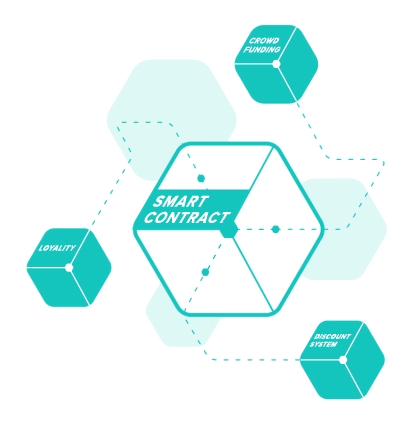
Tokens can be used to facilitate various functionalities within a blockchain network or decentralized application (DApp). They operate on blockchain technology, maintaining the core blockchain features of transparency and security. Crypto tokens can be developed on Ethereum and various other blockchain platforms.
SAG IPL provides comprehensive crypto token development services for blockchain companies and projects:
- Token Creation Services
- Token Platform/Website Development
- ERC20 (Ethereum) Token Development
- BEP20 Token Development
- Metaverse Token Development
- NFT Token Development
- Defi Token Development
- Tron Token Development
- Cardano (ADA) Token Development
- Solana Token Development
- Polygon Token Development
- Crypto Coin Development
Some of the most popular and common types of crypto token development protocols include ERC20, BEP20, TRC20, ERC721, and TRC721.
ERC20 Token Development
ERC-20 (Ethereum Request for Comment 20) is the most popular and common standard for creating crypto tokens on the Ethereum blockchain. The token standard can be used to create only fungible tokens. These tokens are compatible with the Ethereum blockchain and can be created to represent various digital assets or utilities within the Ethereum ecosystem.
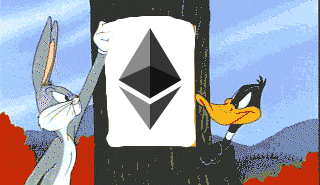
Smart contracts are used to define ERC-20 tokens, protocols, and functions like transfer and check balance. ERC20 token development can be readily integrated into various decentralized applications (DApps) and third-party exchanges for seamless trading.
ERC721 Token Development
ERC-721 is a popular type of Ethereum token standard for creating non-fungible tokens (NFTs). NFTs are crypto tokens that represent unique digital assets like content, art, collectibles, or in-game objects.
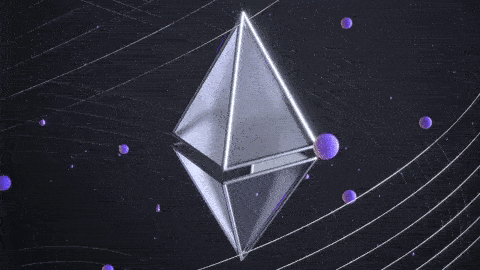
ERC721 token development is used to create tokens that are indivisible and cannot be exchanged like fungible tokens. The development of these tokens involves the use of Ethereum smart contracts to define the ownership and other aspects separately for each token, for each NFT is unique. Blockchain makes it easy to verify the token ownership and authenticity.
TRC20 Token Development
TRC-20 is a token development standard on the TRON blockchain. It was created to rival Ethereum’s ERC-20 standard. It is used to develop fungible tokens on the TRON network.
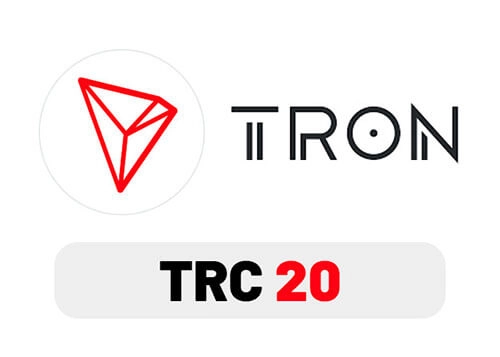
TRC20 token development works only within the TRON ecosystem and the tokens are developed with functionalities such as transferring, check balance, and transaction verification through smart contracts. These tokens are compatible with all TRON-based decentralized applications (DApps) and platforms and can be traded for compatible tokens.
TRC721 Token Development
TRC-721 is a TRON token standard for creating non-fungible tokens or NFTs. Same as ERC-721, the tokens built using TRC-721 are unique and cannot be exchanged. Each NFT represents a unique digital asset, like art, image, or video.
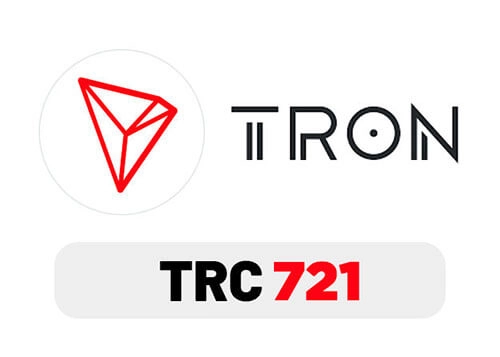
Smart contracts are used to define the token’s governance and operation mechanism, attributes, etc. The ownership information is securely stored on the TRON blockchain, ensuring authenticity.
TRC-721 tokens are NFTs that represent ownership of a variety of unique assets and can be used for trading these assets on compatible exchanges.
BEP20 Token Development
BEP-20 is a token standard similar to Ethereum’s ERC-20 and TRON’s TRC-20, which is used for developing tokens on the Binance Smart Chain (BSC). It provides the mechanism for the development of fungible tokens for use within the BSC ecosystem.
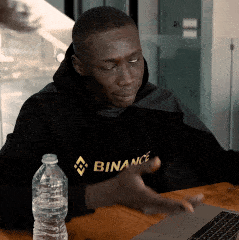
BEP20 token development process involves the use of Binance smart contracts to add functionalities like transfer, balance check, and transaction confirmation to tokens. Developers follow the BEP-20 token standard to ensure compatibility with the Binance Smart Chain and BSC-based decentralized applications (DApps) and platforms. BEP-20 tokens are designed for various use cases such as utility, payments, and represent and trade assets within the BSC ecosystem.
Check out ERC20 vs TRC20 vs BEP20 Token Standards – Which One is the Best?
Web3 Metaverse Development
Web 3.0 Metaverse development refers to an internet-based interconnected world developed using technologies like blockchain and AI. Blockchain technology and smart contracts are being used to create decentralized worlds called metaverses, offering immersive socializing experiences with the ability to interact with people, talk, transact (through digital tokens like NFTs), and have fun virtually.
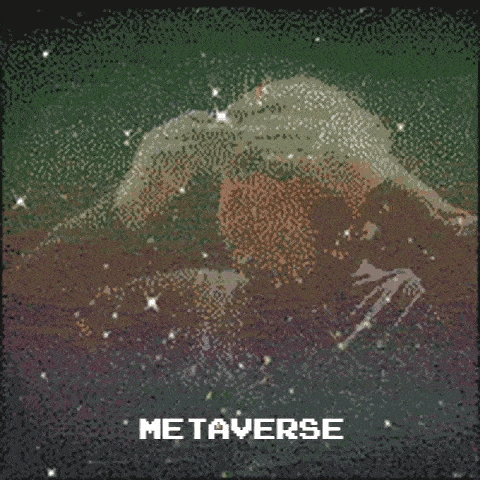
Developers utilize Web3 technologies like blockchain and protocols to enable interoperability between metaverses, allowing assets to move across different metaverses. The goal of the metaverse is to build a world with user-driven economies, where people can buy and own things like real estate using NFTs, and the governance is decentralized.
Web3 Metaverse can support a range of applications and functionalities, from virtual reality programs to decentralized applications (DApps).
TRON (Blockchain) Development
TRON development may refer to building decentralized applications (DApps) and tokens on the TRON blockchain. We have already discussed TRON token protocols like TRC20 and TRC721 above.
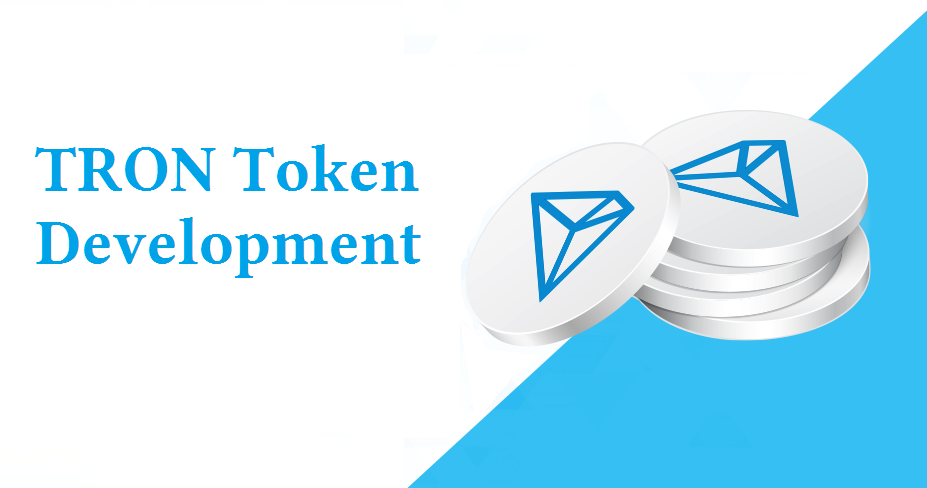
Blockchain developers looking to build on the TRON network must use a compatible programming language like Solidity to write smart contracts for a decentralized app or token. These contracts are designed to execute automatically upon the fulfillment of underlying conditions.
The TRON Network uses a Delegated Proof of Stake (DPoS) consensus mechanism to validate transactions and manage network security. TRON supports the development of both fungible and non-fungible tokens through distinct token standards.
Crypto Web3 Wallet Development
According to the crypto wallet development guide, the process involves creating a secure and compatible digital wallet with support for blockchain-based assets and cryptocurrencies and the ability to transfer and manage tokens.
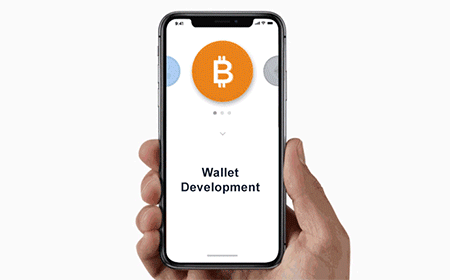
Crypto wallets are developed using decentralized technologies with secure private keys and can seamlessly interact with decentralized applications (DApps), allowing users to securely manage their crypto assets.
Crypto wallet developers may use web development languages like JavaScript to offer a user-friendly interface to users. For security, they use cryptographic signatures and a two-factor authentication mechanism, ensuring users have complete access to their data and money at all times.
Blockchain NFT Development
Besides fungible assets like currency and commodities, blockchain technology can also be used to securely represent, store (transactions), and track non-fungible assets such as real estate and art through specialized crypto tokens called non-fungible tokens or NFTs.
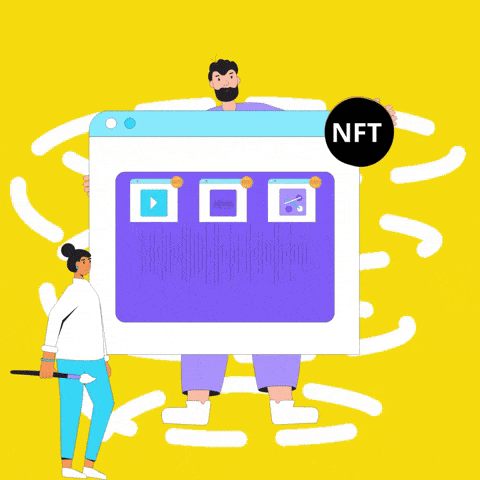
NFT (Non-Fungible Token) development involves creating non-fungible tokens on a blockchain using token standards such as ERC721 and TRC721 to represent unique digital assets like art and collectibles.
A smart contract is used to describe the properties and functionality of an NFT and also hold details of its ownership. Blockchain is used to verify the authenticity and ownership of NFTs at any time. Users can buy, sell, and trade NFTs on any compatible metaverse NFT marketplace, or exchange.
NFT Marketplace Development
An NFT marketplace is a platform that can be used to buy, sell, and trade non-fungible tokens (NFTs). NFT Marketplace Development companies use blockchain and smart contracts to build NFT exchanges with high transparency and security.
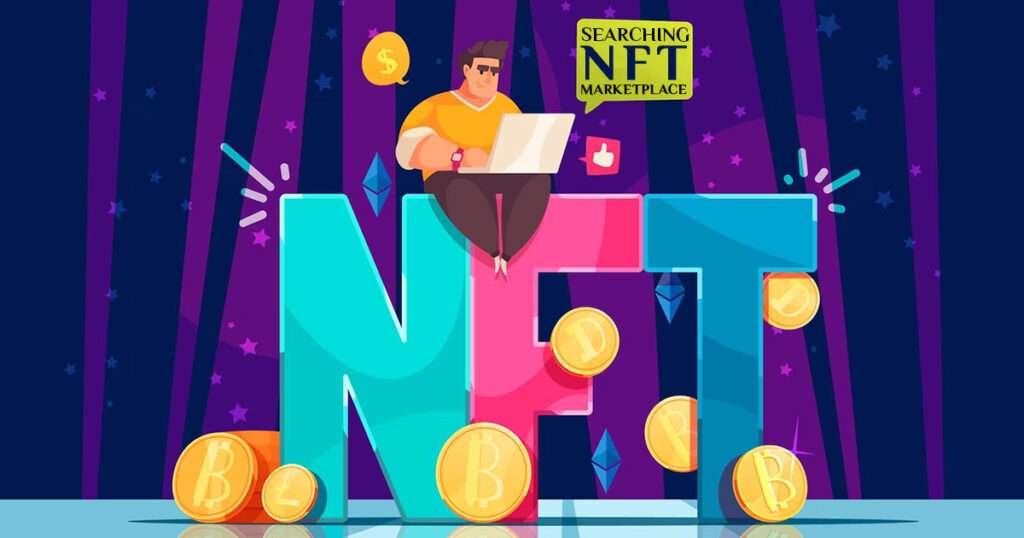
Users looking to buy or trade NFTs can connect their wallets to the marketplace, which enables them to list their NFTs (to sell) or purchase listed NFTs. Smart contracts are used by these platforms to automate and govern NFT trades, ensuring secure and transparent trading of digital assets.
An NFT marketplace can support multiple NFT development standards, including ERC-721, TRC-721, and others, and can be used to trade a variety of NFTs, like gaming NFTs, sports NFTs, and more.
Decentralized Finance (DeFi) Development
Decentralized Finance (DeFi) development refers to building blockchain-based financial services and applications that follow the rules of decentralization, allowing people to access financial services without intermediaries using blockchain technology and smart contracts.
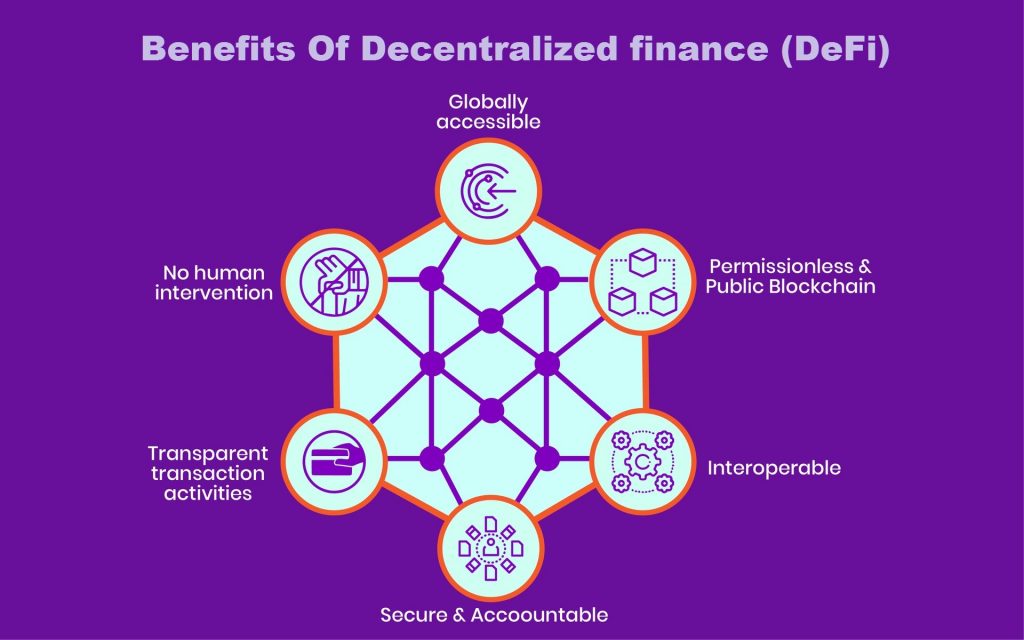
Companies and developers worldwide are now using blockchain technology to build highly efficient and secure DeFi protocols or products for performing a range of financial transactions and services like money transfer, lending, borrowing, investment, trading, and more.
Blockchain smart contracts are used to automate financial transactions based on predefined conditions, thereby reducing human errors and removing the need for intermediaries like banks in financial transactions. Decentralized applications (DApps) and digital wallets are used to access DeFi services.
Crypto/Blockchain Website Development
A crypto website is an online platform where you can find complete information about a particular cryptocurrency as well as buy the token and connect with the project team. Cryptocurrency Website Development involves building an attractive and user-friendly website for a blockchain project or cryptocurrency using web development languages like HTML, CSS, and JavaScript.

The purpose of a blockchain website is not just to inform users with correct details about the project but also to increase the project’s reach and visibility in search engines like Google. This is why a blockchain project website must be impressive, responsive, and SEO-optimized.
Many crypto websites also use APIs to fetch data, such as live cryptocurrency prices and other statistics to make their websites much more attractive and useful. Other common features might include secure user authentication, user registration, crypto wallet integration, smart contracts, blogs, etc.
P2P Crypto Exchange Development
A P2P Crypto Exchange is a website where people can trade cryptocurrencies directly with each other without a middleman. This can be a decentralized exchange or a centralized exchange using some kind of order-matching software to enable users to trade in a peer-to-peer fashion.
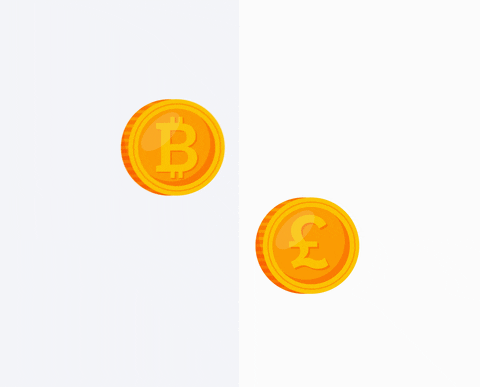
The development of a decentralized crypto exchange involves writing smart contracts to automatically execute trades based on underlying conditions. Users may need to connect their crypto wallets to the exchange to facilitate direct payments.
To maintain security and protect traders’ funds, smart contracts use escrow to hold funds until both parties fulfill their respective duties. Find out all about the P2P crypto exchange development process and cost.
Real Estate Tokenization (Real Estate Token Development)
Blockchain technology has made it possible for Real Estate owners to seamlessly tokenize their physical assets to increase liquidity and profits. Tokenization of real estate is the process of converting real estate assets like land or buildings into digital tokens on a blockchain for easy worldwide trading.
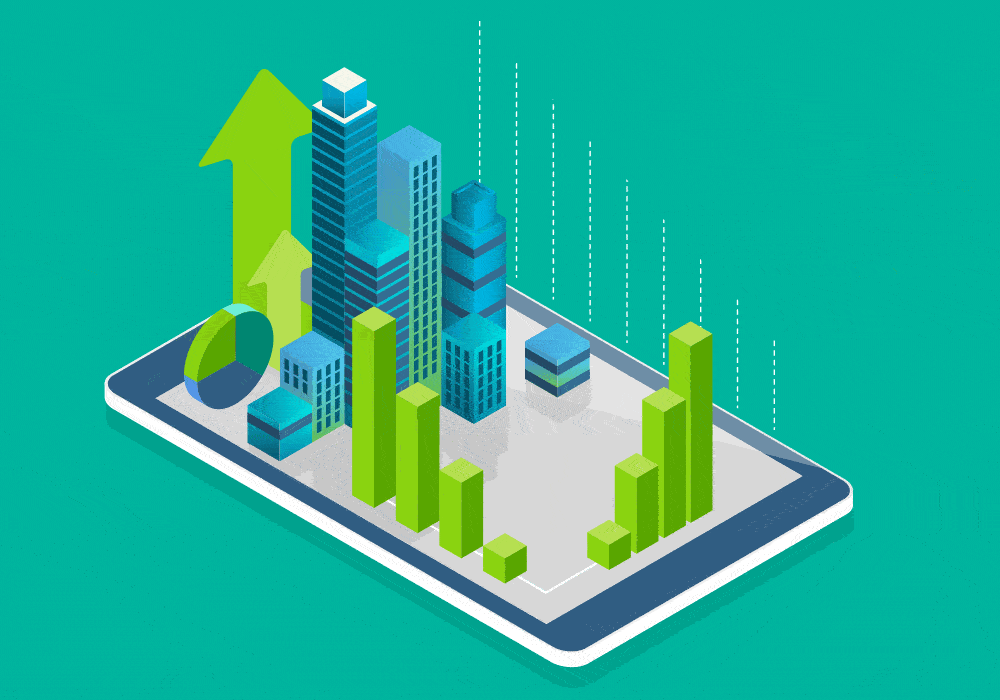
The real estate or property tokenization process involves creating crypto tokens on a compatible standard like ERC-20 (fungible tokens) or ERC-721 (non-fungible tokens) to represent ownership of a property. The ownership records are securely stored in a blockchain for easy and dispute-free verification.
Smart contracts are used to define the terms of the use and transfer of real estate tokens and revenue distribution among shareholders. Investors looking to gain fractional ownership in a tokenized real estate asset can buy its tokens on a crypto exchange.
Token Development on Solana Blockchain
Solana is a popular blockchain platform that also provides token creation and smart contract functionalities. Token development on the Solana blockchain involves creating high-end digital assets using Solana’s native token development standards and protocols.
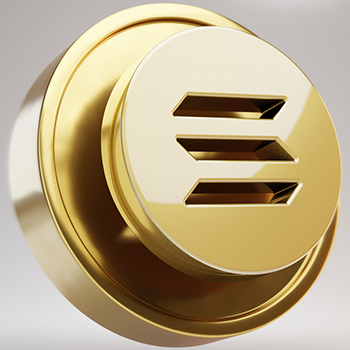
Solana developers use programming languages like Rust to create smart contracts that work on the Solana blockchain. These smart contracts govern token functionalities and transactions.
Solana blockchain can be used for creating both fungible tokens (through SPL standard) and non-fungible tokens (using Candy Machine). All Solana-based tokens integrate native features like high throughput, security, and low transaction costs.
ICO Development
Initial Coin Offering (ICO) is a popular fundraising method used by blockchain projects and companies, where they sell their native tokens in exchange for investors’ funds. The process of ICO development involves creating a new cryptocurrency, which is offered as a token to raise capital from the market for the development of a new project.
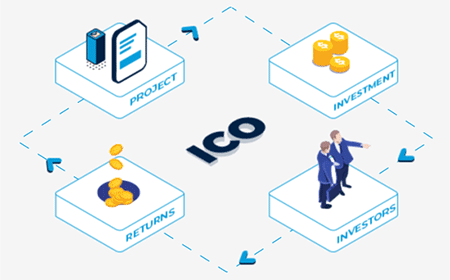
Besides the token launch, the ICO development process also involves creating a detailed project whitepaper, an ICO website providing details of the token’s purpose, economics, and distribution plan, and an ICO marketing strategy to promote the token sale and attract investors.
However, due to the increased fraud in the ICO space in recent years, investors are now shifting towards more secure options such as STO and ETO.
STO Development
A Security Token Offering (STO) is similar to an ICO, but instead of selling regular crypto tokens, the project creates and sells security tokens, which are cryptocurrencies backed by some kind of security such as equity or ownership rights in the project.

The STO development process involves issuing digital securities (blockchain tokens) to raise funds for a genuine project. Unlike ICOs, STOs are required to comply with securities regulations, as they are considered and treated as digital securities.
Investment in security tokens is well protected because these tokens usually represent some kind of traditional security, which protects them from market volatility. The STO development process also involves legal registration of the company and the token as a security. Security token holders and buyers get ownership in the underlying securities.
ETO Development
An Equity Token Offering (ETO) is similar to an ICO/STO, where the token is offered in exchange for investment. In this case, the token on offer is an equity token, which represents ownership in a company, just like traditional stocks, enabling investors to buy fractional ownership in their favorite blockchain projects or companies.
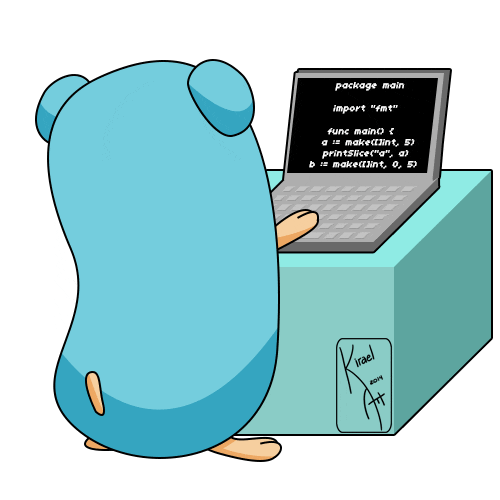
The ETO development involves creating a regulated platform or website in compliance with the securities laws of the local region. These tokens are offered to investors along with ownership in the project and access to potential dividends and voting rights.
Equity tokens can be traded on relevant secondary markets like crypto exchanges, fostering liquidity. By combining the benefits of blockchain technology with legal security, ETOs offer a comprehensive crypto investment solution.
Ethereum To Binance Bridge Development
Ethereum to Binance Bridge Development refers to a mechanism that enables interoperability between the Ethereum and Binance blockchains. This interoperability enables the transfer of assets between the two most popular blockchain platforms.
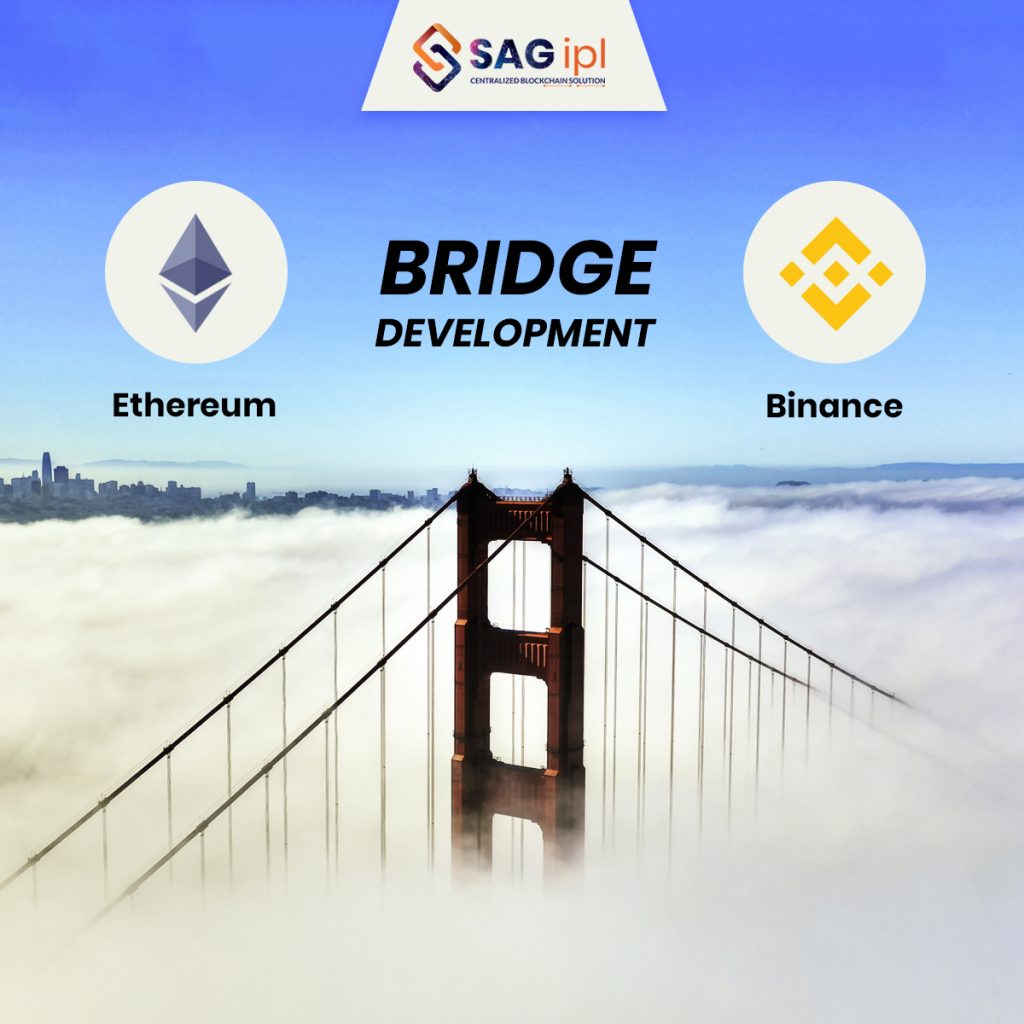
Smart contracts are used to build interoperability between Ethereum and Binance Chain, which involves writing the mechanism to lock assets on one blockchain while equivalent tokens are issued on the other.
Users when looking to transfer tokens between blockchains can use the bridge. This interoperability allows users to seamlessly move assets between these two blockchains, enhancing liquidity and creating new utilities for tokens.
Animated Crypto Video Creation
Video creation services are offered by SAG IPL as a part of our blockchain and crypto marketing services. We create numerous types of animated videos, including introduction videos, explainer videos, and promotional videos.

The animated crypto video development process involves producing an engaging and informative animation-based video to explain a cryptocurrency project in the most exciting way to attract investors and users.
The process involves creating an interesting script, preferably with a compelling story about the project’s background, which is then turned into an impressive video using animation with live characters, charts, and graphics.
Blockchain Promotion Pitch Deck Design
A Pitch deck is another crucial promotion element that can help a crypto project attract and win investors. The blockchain promotion pitch deck design involves creating an attractive visual presentation to explain the unique value proposition and potential of the blockchain project or cryptocurrency to engage and influence potential investors or stakeholders.

The pitch deck is usually designed in the form of slides containing information about the project, including problem statement, proposed solution, market analysis, about the token, team, and roadmap. Attractive design elements, such as color schemes, fonts, styles, and imagery are crucial to make the presentation professional and engaging.
Cryptocurrency Promotion Strategy Development
Cryptocurrency promotion strategy development involves creating a detailed plan to promote a blockchain project or cryptocurrency to improve its market exposure, credibility, and trust and eventually bring investors to it.

The process involves first gaining a deep understanding of the project and its target market and audience and getting familiar with project goals. Based on that, a detailed marketing strategy is developed, which may include techniques such as content marketing, social media promotion, influencer partnerships, community engagement, and paid advertisement.
Bookmark this page for all the different types of cryptocurrency development articles, news, and updates. If you’re looking for professionals to create your own cryptocurrency, please contact SAG IPL (tech@sagipl.com) to discuss your project & requirements with one of our blockchain experts.

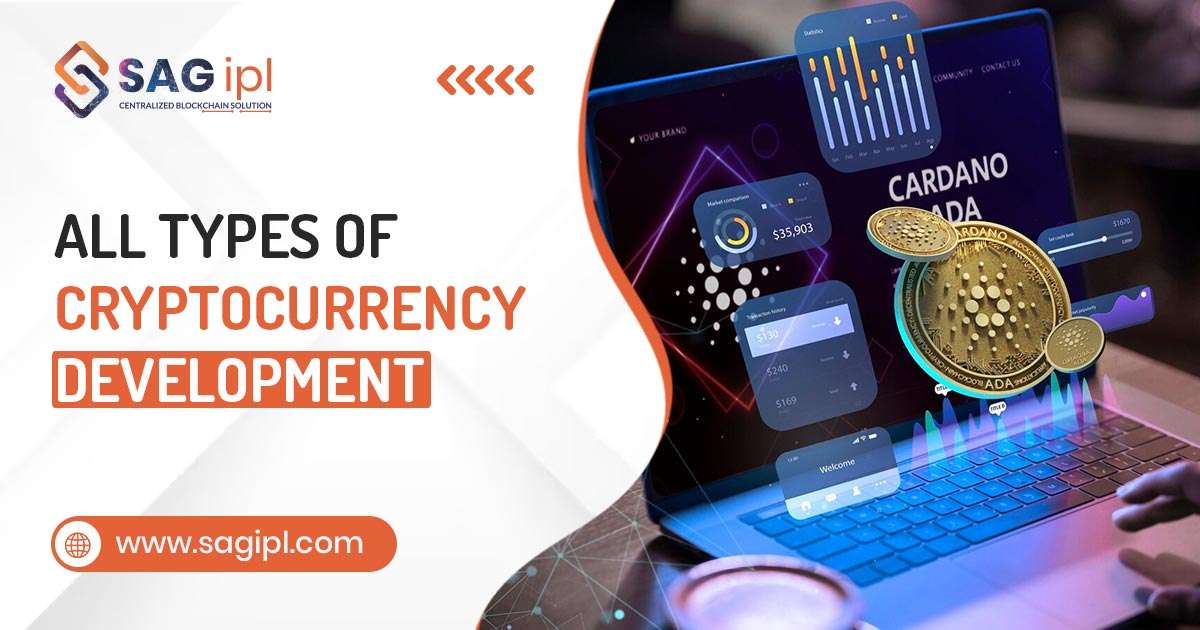
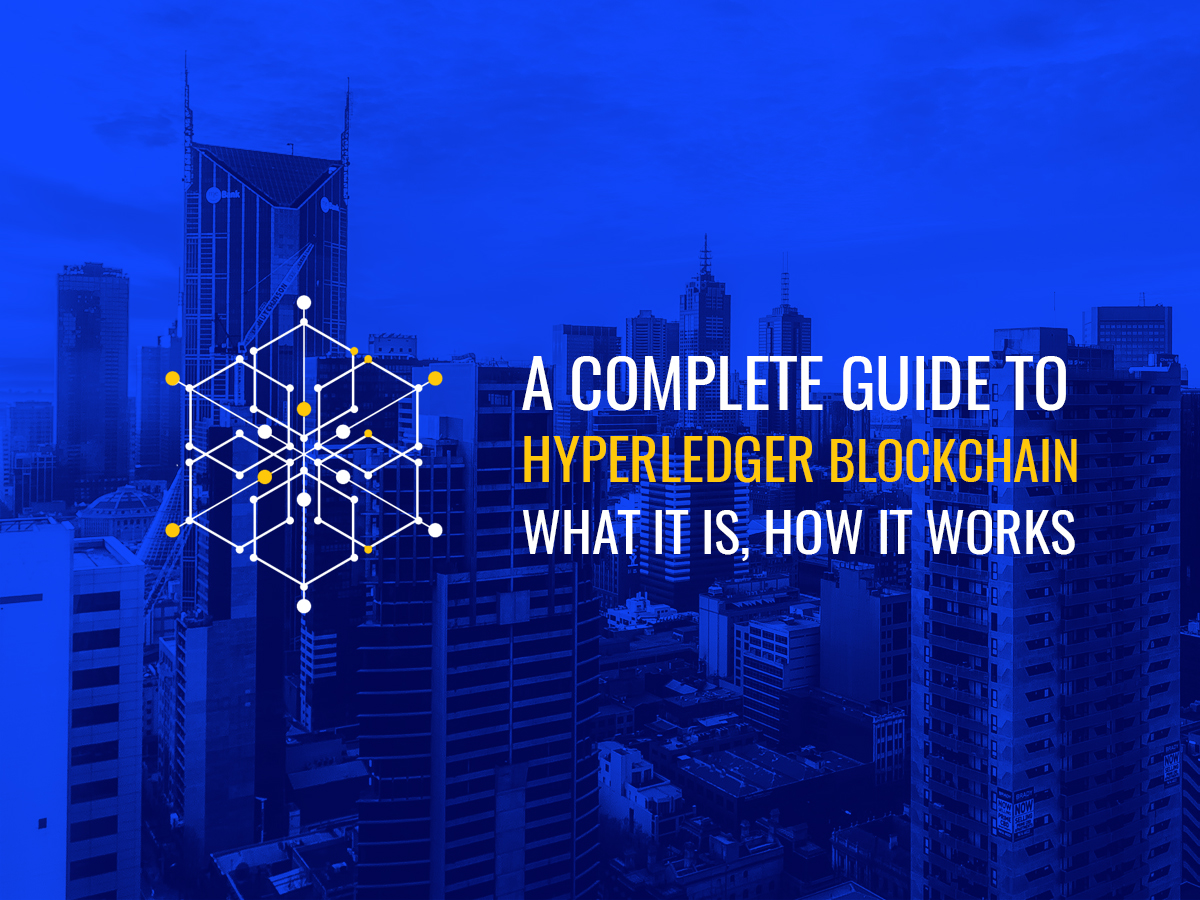
![What is Blockchain Development and How Does it Work? [2024] What is Blockchain Development](https://blog.sagipl.com/wp-content/uploads/2017/11/What-is-Blockchain-Development-250x150.jpg)


